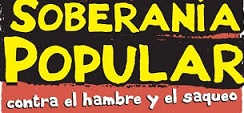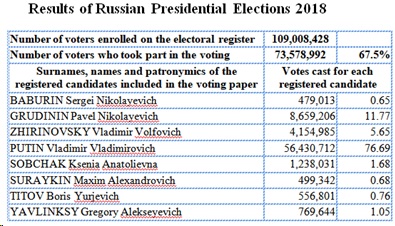Hay un concepto enfermizo de no injerencia en los asuntos internos de los Estados que es alentado con entusiasmo por los más feroces dictadores que plagan nuestro planeta, apoyados en un falso principio de soberanía nacional que no tiene en cuenta debidamente la fuente legítima de esa soberanía.
Debería estar claro a estas alturas de la historia que el concepto de soberanía nacional se aparta del derecho exclusivo de los gobernantes para establecerse en los derechos de los gobernados. Este concepto se remonta ya a más de dos siglos, cuando eran los monarcas quienes ostentaban la función de soberanos. Rousseau efectúa a fines del siglo XVIII un giro en la historia de la soberanía. Este giro consiste en hacer de la soberanía del pueblo una realidad, un acto, cuando anteriormente esta noción no representaba más que una potencialidad. Con Rousseau se pasa de una soberanía del pueblo virtual o potencial a una soberanía del pueblo como protagonista de sus actos.
Hay que señalar, sin embargo, que incluso antes de Rousseau la soberanía del pueblo era considerada  como fundamento posible de la legitimidad del poder político, pero quedaba neutralizada por la potestad de los monarcas. A partir de Rousseau, la soberanía del pueblo proporciona la auténtica legitimidad y validez de la soberanía, tanto en relación con los términos del contrato social como con el concepto de voluntad general. El pueblo es el sujeto de esa voluntad general y también su objeto, por lo cual es el sujeto real y en acto de la soberanía: «... estando formado el cuerpo soberano por los particulares, no tiene ni puede tener interés contrario al de ellos; por consecuencia, la soberanía no tiene necesidad de dar ninguna garantía a los súbditos, porque es imposible que el cuerpo quiera perjudicar a sus miembros» (J.J. ROUSSEAU, El Contrato social, cap. VII). Es decir, el gobierno no otorga derechos sino que se limita a defender los derechos inalienables del pueblo en la administración del Estado y la metáfora ilustra que es el cuerpo con todos sus miembros el que ostenta la soberanía y la cabeza sólo lo dirige.
como fundamento posible de la legitimidad del poder político, pero quedaba neutralizada por la potestad de los monarcas. A partir de Rousseau, la soberanía del pueblo proporciona la auténtica legitimidad y validez de la soberanía, tanto en relación con los términos del contrato social como con el concepto de voluntad general. El pueblo es el sujeto de esa voluntad general y también su objeto, por lo cual es el sujeto real y en acto de la soberanía: «... estando formado el cuerpo soberano por los particulares, no tiene ni puede tener interés contrario al de ellos; por consecuencia, la soberanía no tiene necesidad de dar ninguna garantía a los súbditos, porque es imposible que el cuerpo quiera perjudicar a sus miembros» (J.J. ROUSSEAU, El Contrato social, cap. VII). Es decir, el gobierno no otorga derechos sino que se limita a defender los derechos inalienables del pueblo en la administración del Estado y la metáfora ilustra que es el cuerpo con todos sus miembros el que ostenta la soberanía y la cabeza sólo lo dirige.
Los autoritarismos y totalitarismos modernos tergiversan los conceptos para regresar a la época monárquica, ostentando una "soberanía nacional" que implica un principio de "no injerencia" en los "asuntos internos" presuntamente dirigidos por el nuevo gobierno "soberano".
La intervención militar en Libia, autorizada por las Naciones Unidas en 2011 estableció un precedente justificatorio de injerencia en los asuntos internos de un Estado fallido donde se están cometiendo graves actos de lesa humanidad. El 26 de febrero de ese año el Consejo de Seguridad impuso sanciones no militares a Libia (Res. 1970). Al cabo de cuatro días, la Asamblea General expulsó a Libia del Consejo de Derechos Humanos. En menos de un mes, el 17 de marzo, el Consejo de Seguridad amplió e intensificó sus sanciones (Res. 1973) imponiendo sanciones militares. Consiguientemente, el 18 de marzo, una «coalición internacional», liderada por Francia y de la que formaron parte Estados Unidos y el Reino Unido dio comienzo a la operación 'Odisea al amanecer' contra las fuerzas armadas de Gadafi.
¿Qué es lo que impide una acción similar en Venezuela, un Estado fallido martirizado por un cruel dictador?
- Hits: 7478
 El concepto de Estado de Derecho es bastante polémico en la actualidad, sobre todo en las regiones latinoamericanas. Si lo analizamos en detalle, y aplicamos su definición a la realidad cubana, podemos llegar fácilmente a conclusiones que demuestran la ausencia de este mecanismo democrático universal. En primera instancia el Estado de Derecho es el tipo de organización política del Estado donde la organización, desempeño y control del poder se realizan de acuerdo a la jurisprudencia. Lo más notable es la división, independencia, pero a la vez mutuo control de los tres poderes del Estado, es decir, el poder ejecutivo, legislativo y judicial. En un gobierno centralizado, como sucede en el caso cubano, las funciones de los tres poderes rectores se solapan, no existe independencia entre ellos, lo que acarrea que los mecanismos de desempeño y evaluación de las funciones fallen en múltiples ocasiones. Mucho menos puede existir autonomía de poderes cuando se coloca a una entidad como el Partido Comunista de Cuba (único partido político oficialmente existente en Cuba), por encima de la propia Asamblea Nacional, por encima de la Constitución, y se declara como “fuerza dirigente y superior de la sociedad y del Estado”.
El concepto de Estado de Derecho es bastante polémico en la actualidad, sobre todo en las regiones latinoamericanas. Si lo analizamos en detalle, y aplicamos su definición a la realidad cubana, podemos llegar fácilmente a conclusiones que demuestran la ausencia de este mecanismo democrático universal. En primera instancia el Estado de Derecho es el tipo de organización política del Estado donde la organización, desempeño y control del poder se realizan de acuerdo a la jurisprudencia. Lo más notable es la división, independencia, pero a la vez mutuo control de los tres poderes del Estado, es decir, el poder ejecutivo, legislativo y judicial. En un gobierno centralizado, como sucede en el caso cubano, las funciones de los tres poderes rectores se solapan, no existe independencia entre ellos, lo que acarrea que los mecanismos de desempeño y evaluación de las funciones fallen en múltiples ocasiones. Mucho menos puede existir autonomía de poderes cuando se coloca a una entidad como el Partido Comunista de Cuba (único partido político oficialmente existente en Cuba), por encima de la propia Asamblea Nacional, por encima de la Constitución, y se declara como “fuerza dirigente y superior de la sociedad y del Estado”.

